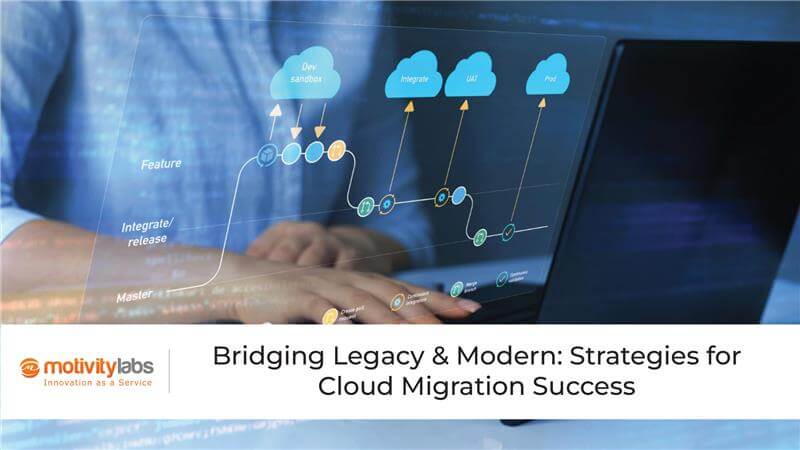Overview
As the technological landscape is evolving rapidly in today’s world. What is Platform Engineering and How It has emerged as a discipline of designing and building toolchains as well as workflows for software engineering organizations. This technological field of study is carefully bridging the long-laid gaps between traditional software development and operations, eventually creating scalable and flexible platforms and enhancing the operational efficiency as well as productivity of a developer.
In this blog, we will delve into the key concepts, benefits, challenges, and best practices of Platform Engineering. We will also explore the technologies that are being used at the present time, and then compare it to similar disciplines like DevOps, in the sense of how Platform Engineers differ from Software Engineers. By the end of this blog, you will have a comprehensive understanding of What is Platform Engineering and how we as a product and platform engineering company, explore the potential to transform your organization’s processes of software development.
Introduction: What is Platform Engineering?
It is a newly emerging discipline in the field of technology, that works on building and operating self-service platforms, eventually enabling software teams to deliver products and services faster and more efficiently. Being presented as a relatively new field with its ever- evolving nature, Platform Engineering has the potential to completely change the way in which software is developed and delivered today. It is to the credit of this new discipline that developers are now empowered to create and own their code, subsequently speeding up its delivery and creating an increased value among customers.
As different fields in Digital Platform Engineering Services, the most commonly used ones include Enterprise Platform Engineering and Cloud Platform Engineering. As a discipline that focuses on building and managing internal platforms, Enterprise Platform Engineering empowers software development teams, allowing developers to focus on building applications, while the platform team handles the underlying technical details. Likewise, Cloud platform Engineering is a subset of enterprise platform engineering that offers the benefit of scalability, flexibility, and cost-effectiveness provided by cloud computing.
How Does Platform Engineering Work?
Platform Engineering as a field incorporates a set of teams that then work in collaboration to automate the process of infrastructure management. They use a centrally managed technology platform, for the purpose of enabling developers to serve themselves with reliable tools and workflows. Thus, by reducing the overall cognitive load on development teams, It enables software developers to focus more on their innovation and delivery, eventually ensuring smoother, faster, and more reliable ways of software production.
Working in a close association with software engineering teams, teams in Platform Engineering consulting solutions help them to understand their specific needs and build platforms accordingly that meet those set of needs. They also work hand in hand with the infrastructure teams, in order to ensure the reliability and scalability of their platform.
What Is a Platform Engineer?
Platform engineers are the unsung heroes in the world of software development. While they may not write the code themselves, their expertise proves to be very useful in creating the infrastructure and processes that eventually enable the developers to focus on building their products. They possess a deep understanding of both code development and operations, subsequently ensuring that the right tools and processes are in place for the developers. The modern IT solutions bridges the gap between business objectives and its technical execution, possessing a comprehensive view of the software lifecycle. They excel in cloud-native environments, DevOps practices, and third-party integrations.
For a product and platform engineering company, their strong communication skills allow them to collaborate effectively with stakeholders at all levels. Ultimately, they balance the hands-on technical work with a broader perspective, and solve complex challenges with their creative thinking. In simplest terms, Platform Engineers are like hospital administrators: they do not perform the surgeries, rather they provide the right space, tools, and processes for doctors and nurses to do what they do best.
Platform Engineer vs Software Engineer vs SRE
While Platform Engineers, Software Engineers doing DevOps, and Site Reliability Engineers (SRE) share the common goal of improving the delivery and operational efficiency of a software, they do eventually differ in their focus and approach. DevOps, performed by Software Engineers, is more focused on its cultural and process aspects, fostering collaboration between development and operations teams. SRE meanwhile, rooted in Google’s practices, focuses on applying certain software engineering principles to operational problems, in order to achieve high availability and better reliability. Platform Engineering consulting solutions, encompassing elements of both, subsequently concentrating on building and managing the underlying platform that supports these practices.
Platform Engineering and DevOps often exist together, as they both focus on automation and continuous delivery. However, just as Platform Engineering focuses on enabling product development, DevOps only works at directly builds the product. Moreover, the success of Platform Engineering is measured by the ease of access to tools and services, while in contrast, the success of DevOps lies in application performance and customer satisfaction.

Key Areas in Platform Engineering
As a vital discipline in the modern era of software development, Platform Engineering essentially focuses on creating and maintaining Internal Developer Platforms (IDPs) that help to streamline software delivery processes. This process in digital platform engineering services inherently involves several key areas: –
Building Internal Developer Platforms (IDPs) is a fundamental process. These IDPs centralize tools and processes, subsequently providing a standardized environment that reduces friction in the development procedure. They then help empower developers with self-service capabilities, enhancing the productivity and reducing their operational dependencies.
Standardizing such software delivery processes ensures consistency and efficiency in software development. This involves defining best practices, tools, and guidelines to streamline workflows, minimizing variability and eventually simplifying maintenance. Security is a critical component of standardization, requiring the implementation of automated security testing and access controls to protect applications and data.
Setting and maintaining of Service Level Agreements (SLAs) is essential for the transparency and accountability in this process. Not only this, but SLAs also define the expected performance and availability of platform services, that help to guide decisions based on capacity planning and prioritization. Ensuring their resource efficiency, security, and compliance can be achieved through “start right” templates and “stay right” guardrails, with the help of automated governance and scanning mechanisms.
Lastly, Checking team performance metrics is important for measuring how well platform engineering is working. Key performance indicators (KPIs) like deployment frequency, change lead time, and change failure rate provide essential insights into the development of the platform as well as its operational health. By regularly reviewing these metrics, teams can identify bottlenecks, inefficiencies, and evidently seek improvement opportunities, ensuring that the platform meets the evolving needs of developers and also their business requirements.
Platform Engineering Challenges
There are a number of challenges that software teams may face. Some of these challenges include complexity of the platform, as they evidently grow in size and scope. Additionally, expensiveness in building and maintaining platforms can be another challenge. Security also adds up to the list of challenges as platforms must be secure to protect against unauthorized access and data breaches. Lastly, performance is a big challenge as platforms must be able to handle the load of the applications that are built on them.
Platform Engineering Best Practices
There are a number of best practices that can be followed to ensure that a platform engineering initiative is successful. Some of these best practices include primarily defining the purpose and scope of the platform, as in the goals and the users of the platform, along with the types of applications that will be built on the platform. Other best practices include choosing the right technologies to be used to build platforms depending upon the platform’s requirements. Also, building a self-service platform easy for the software teams to use adds up to it. Furthermore, the best practices include automating everything to reduce the time and effort required to manage the platform and lastly, monitoring and improving the platform to identify and address any issues.
Conclusion
Platform engineering is a fast-growing field with the power to transform how software is developed and delivered..At Motivity Labs, by following the best practices outlined in this blog, we help organizations to build and operate successful platforms of their own that subsequently help to enable their software teams to deliver products and services faster and in a more efficient way. As a product and platform engineering company, our team of more than 550 experts is dedicated specifically to delivering exceptional results in digital platform engineering services. To partner with us for dedicated platform engineering consulting solutions, and to build something extraordinary together,
Contact us today to discuss your needs. To know more about our services related to product and platform engineering you can also mail us at info@motivitylabs.com .



